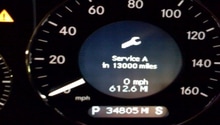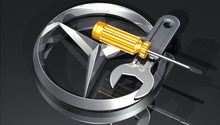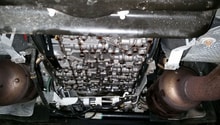Mercedes-Benz C-Class: 5 Tips to Keep Your Car Running for a Long Time
A Mercedes-Benz C-Class w204 is a considerable investment. Just as physicals and dental check-ups help you avoid serious problems, so will regular preventative maintenance help your car. These five tips could help keep it happy and healthy for a long time.
This article applies to the Mercedes Benz C-Class (2007-2014).
The Mercedes-Benz C-Class (w204) first appeared in 2007, and was replaced by the 2015 C-Class (w205) several months ago. Because the w204 vehicles are comparatively new, and with many still under warranty, a little TLC will keep them running for many years. Mercedes-Benz has service interval suggestions all the way up to 15 years or 195,000 miles. Here are 5 tips on doing a few simple and inexpensive things to avoid larger as well as costlier ones.

Tip 1 – Service your car regularly
The engineers who designed and built your car have recommendations regarding the frequency of servicing it. These are basic guidelines based on what they know regarding what they built. They don't know how you drive, or where you live. Using the manufacturer's guidelines as a starting point, a little extra attention will extend the life of your car. Regularly check your fluid levels. If they are low or discolored, you may need to service your car before its scheduled time. It is not a good idea to delay service after a scheduled interval, even if the fluid levels and coloration are fine. An ounce of prevention is worth pounds of service repairs. The Mercedes C-Class has been engineered to require only basic service maintenance: air filters, oil and oil filter, transmission fluid, brake fluid, as well as spark plugs. It is also a good idea to follow the manufacturer's recommendation for cleaning and lubricating the panoramic roof guides. Because the C-Class uses a timing chain rather than a timing belt, visual inspection of it is important. There is no suggested service for the timing chain.
Tip 2 – Maintain your fluids
Manufacturer's Recommended Service Schedule:
Oil and filter change - 13,000 miles or yearly
Brake fluid change - Every two years
Transmission fluid and filter - 39,000 miles
Engine coolant - 143,000 miles or 11 years
Many C-Class owners like to check their oil every time they stop for gas, even though the oil service recommendation is to change the oil and filter once a year. Early C-Class models did not have oil dipsticks. Engine oil was checked via the dashboard service reminders. It is also a good idea to regularly check your transmission and brake fluids. Again, your driving habits and where you live can impact the timing of "suggested" service intervals. Every month or so, check your brake and transmission fluid levels. With all these fluids, you should look for low levels and/or discoloration. Also, remember that it is important to monitor your antifreeze, power steering fluid, and windshield washer fluids regularly. See the Related Discussions posted below.
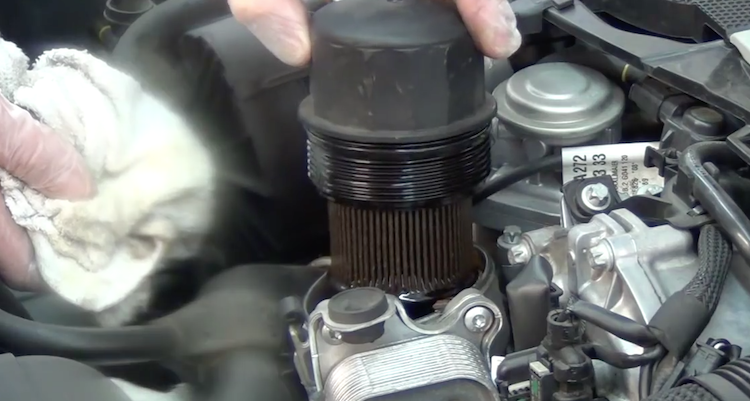
Tip 3 – Take care of your tires and brakes
Check your tire pressure regularly. Under-inflated or over-inflated tires will impact the overall performance of your car. A National Highway Traffic Safety Association (NHTSA) study finds that a tire that is under-inflated by 20 percent will lose 30 percent of its tread life. Over-inflated tires are more likely to be damaged when rolling over potholes and debris. They also cause a rough ride.
Replacing brake fluid every two years, as recommended, may not be enough to ensure that your brakes are performing as they should. Most C-Class owners report that their original brake pads and rotors last from 35K to 50K miles and more. Excessive braking and severe weather conditions can contribute to accelerated brake system deterioration. Inspect your brakes regularly to make sure they are working properly.
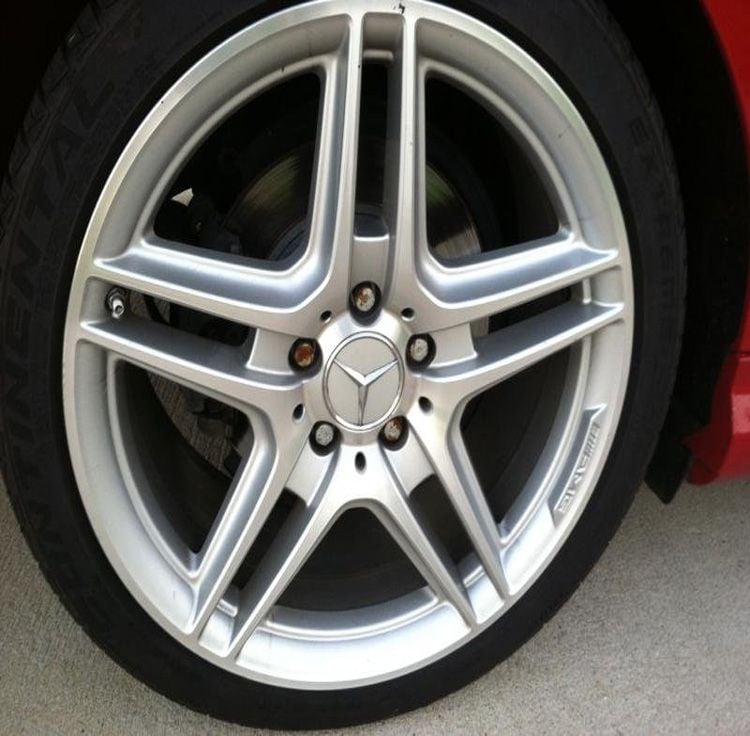
Figure 3. Take care of what moves and stops you. 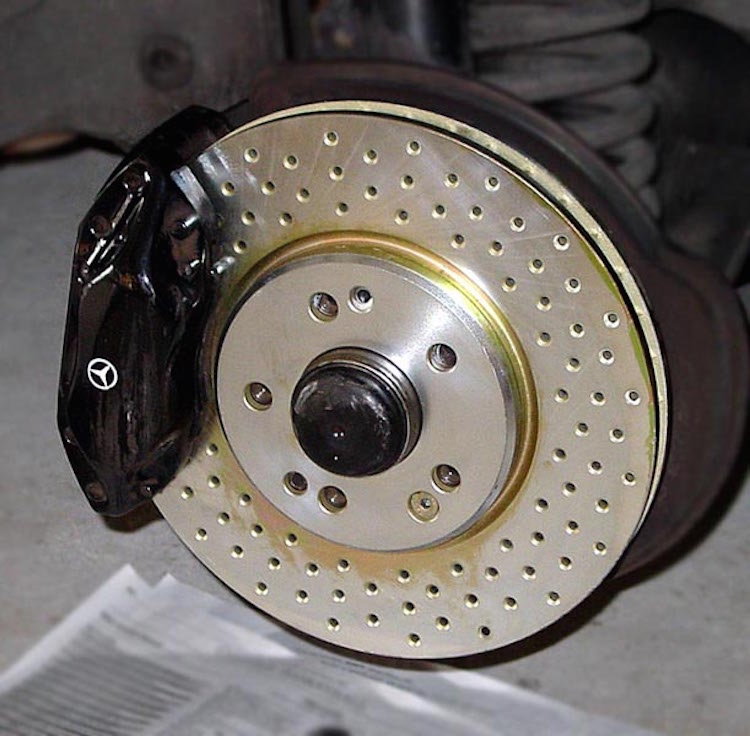
Figure 4. Check pads and rotors for remaining life.
Pro Tip
Most brake rotors have a dent or line showing where their minimum thickness is (i.e., when they need replacement). Brake pads should be replaced when the remaining friction material is less than 3mm. Remove the wheel to easily measure pad thickness.
Tip 4 – Use your senses
You are equipped with tools to help you keep your car running for a long time. Your five senses.
Sense of Touch - Does the steering wheel vibrate while driving? Do the brakes feel "mushy" when you depress the brake pedal? Do you feel the car pulling to one side when you brake? There are many problems that can be discovered if things don't "feel" right.
Sense of Hearing - Do your brakes make noise when you stop? Do you hear a clicking or whining noise coming from your engine? Do you hear a rustling noise coming out of your ventilation ducts? If something is about to go wrong on your car, "listening" to it can save you time and trouble.
Sense of Sight - Do necessary fluids look discolored? Do you see uneven tread wear on your tires? Does your timing chain look worn? Do you see drops of oil or transmission fluid on your garage floor? Can you see exhaust coming from your car? Seeing is believing.
Sense of Smell - Does the engine smell hot? Do you notice a sulfur dioxide smell? Do your engine oil and transmission fluid have a strange odor? Do you smell your brakes or engine overheating? Sniffing out small problems can avoid big ones.
Sense of Taste - Do you notice a dry, acidic taste in your mouth? That's your brain telling you that because you didn't maintain your car, you are now faced with some pretty steep repair costs.

Tip 5 – Choose your repair facility carefully
At some point in time, you will have to take your vehicle in to be serviced. Just as you choose your medical provider and babysitter carefully, so should you be choosy when it comes to finding a reputable service facility. Whether it be a Mercedes-Benz dealership or a "certified" Mercedes repair garage, you need to do a little homework. Get recommendations from friends. Investigate the facility online to see if there have been any complaints to state certification boards. And, don't be afraid to ask questions regarding the need for or the cost of a repair. A good service facility will be upfront with you.

Related Discussion
- Reset Service Light - MBWorld.org
- DIY Oil Change - MBWorld.org
- Service Schedule PDF - MBWorld.org

